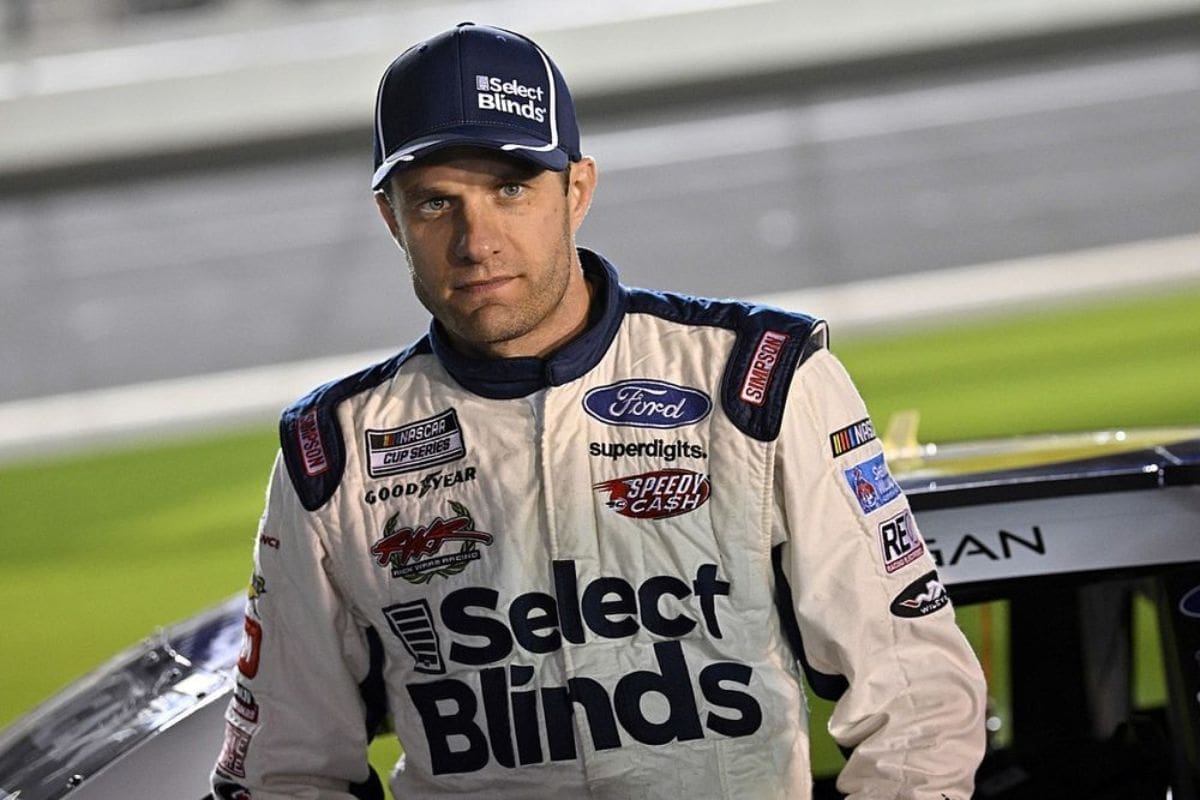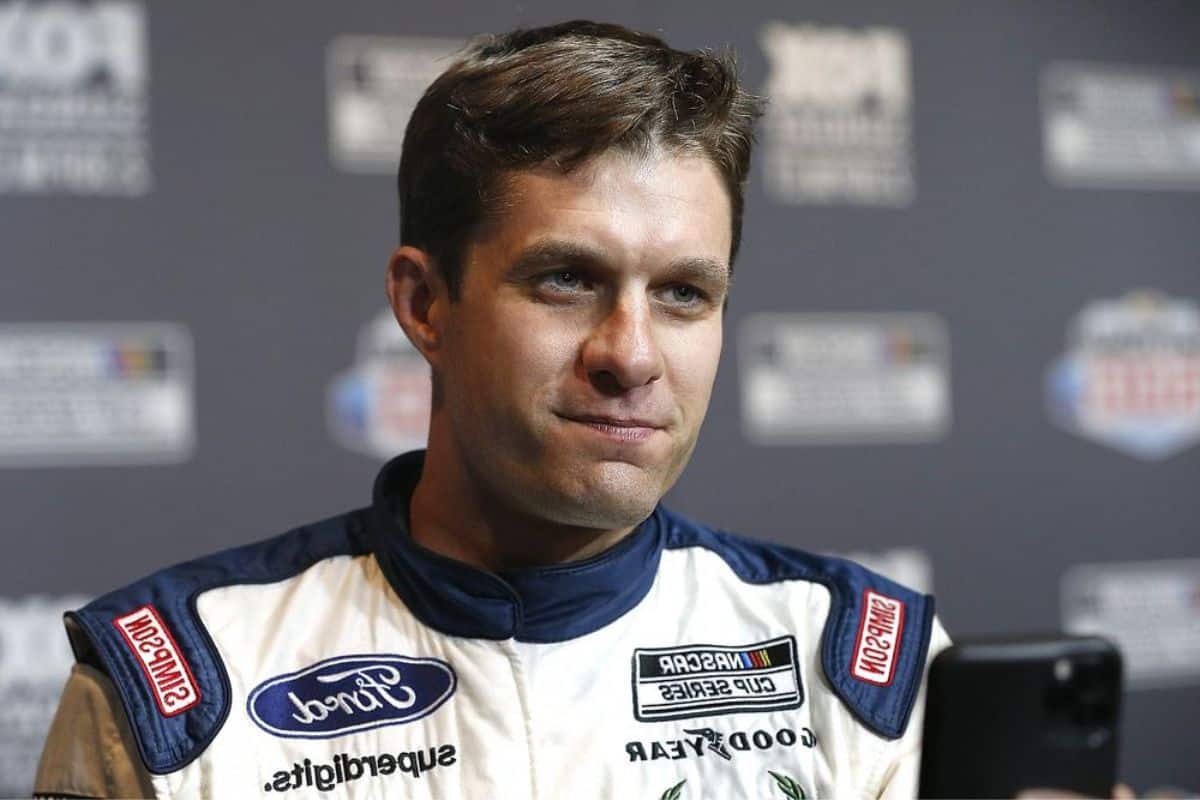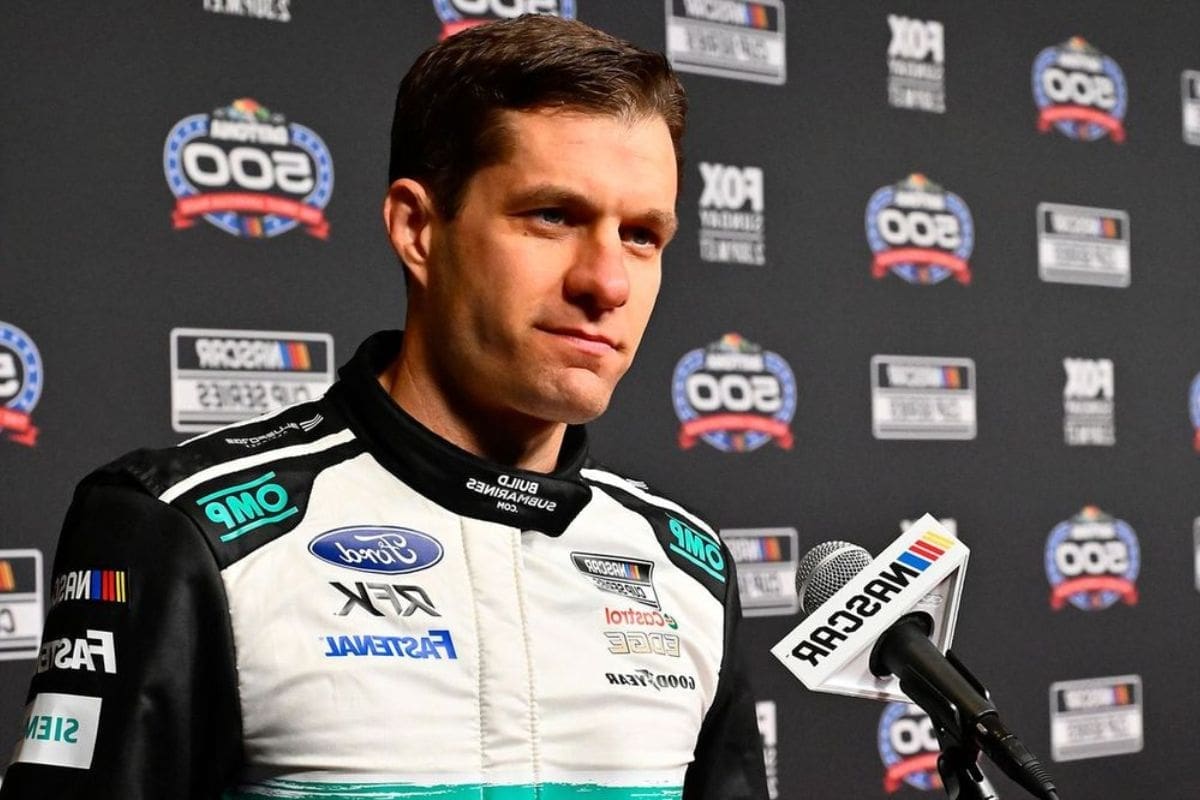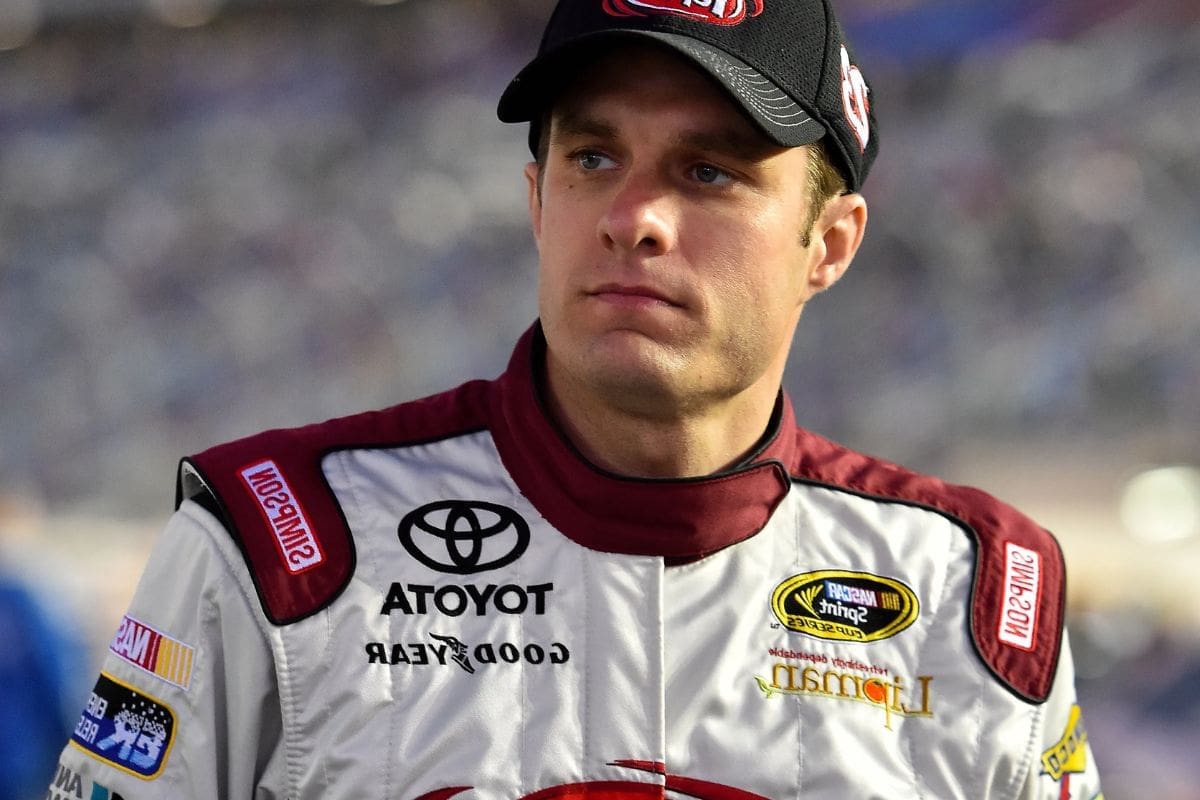David Ragan Challenges Old School Fans: As NASCAR steers towards a future incorporating electric vehicles, David Ragan stands at a crossroads, challenging long-time fans to reconcile their reverence for tradition with the sport’s progressive trajectory. Ragan’s reflections highlight a tension between the nostalgic roar of combustion engines and the silent speed of electric power, sparking a complex dialogue within the motorsports community. This dynamic presents an intriguing paradox: Can NASCAR retain its storied heritage while embracing state-of-the-art technology?
Key Highlights
- David Ragan balances traditional motorsports values with the excitement electric vehicles bring to NASCAR.
- Ragan acknowledges mixed reactions within the NASCAR community towards the shift to electric cars.
- He serves as a bridge between NASCAR’s historical roots and its technological future.
- Ragan highlights the importance of embracing change for the sport’s growth and innovation.
- He emphasizes that resistance to new technologies often leads to eventual acceptance and progress within NASCAR.
NASCAR’s Technological Evolution
As NASCAR approaches its eighth decade, the sport’s integration of state-of-the-art technology marks a significant shift in its storied history. This evolution highlights a broader trend within the automotive industry, wherein advancements are not simply gradual but game-changing. The incorporation of technology within NASCAR has covered various aspects, from enhanced safety measures to improved performance analytics, reflecting the sport’s dedication to progress while upholding its competitive essence.
Historically, NASCAR has been a stronghold of traditional, gasoline-powered vehicles, a manifestation of its deeply rooted heritage. However, recent years have witnessed a paradigm shift towards embracing inventive technologies. This change is not just a gesture towards modernization but a strategic alignment with the future direction of the automobile industry at large. As the global automotive landscape gradually shifts towards electric and hybrid technologies, NASCAR’s adaptation reflects a forward-thinking approach, ensuring the sport remains pertinent and sustainable.
While this technological evolution is praised by many, it does not come without opposition. A portion of NASCAR’s fanbase remains steadfastly loyal to the raw excitement and auditory experience of gasoline engines, regarding technological advancements with doubt. This contrast poses a distinct challenge for NASCAR: to balance the respect for tradition with the necessities of innovation.
NASCAR’s Experiment with Electric Cars
NASCAR’s recent venture into electric cars signifies a pivotal moment in its ongoing technological evolution, aiming to reconcile the sport’s storied traditions with the imperatives of modern innovation. The decision to investigate electric vehicle (EV) technology reflects a broader shift within the motorsports industry, driven by environmental considerations and advancements in automotive engineering. This move, while controversial among traditionalists, positions NASCAR to remain pertinent in an era increasingly defined by sustainability and cutting-edge technology.
The recent demonstration of an electric NASCAR vehicle, despite initial delays due to weather conditions, marks a successful inaugural step. The demo run, conducted at the iconic LA Coliseum, displayed the potential of electric powertrains in high-performance racing environments.
However, the shift towards electric cars in NASCAR is not without its challenges. The sport’s fanbase, which often prides itself on its deep-rooted connections to tradition, may be resistant to such significant changes. The rumble of combustion engines and the natural experience of gasoline-powered racing are integral to the NASCAR identity.
Moreover, the logistical and infrastructural changes required to support electric racing are substantial. Charging stations, battery disposal protocols, and ensuring parity with traditional gasoline-powered cars are just a few of the hurdles that NASCAR will need to address.
David Ragan’s Perspective on EVs in NASCAR
David Ragan, a respected figure in NASCAR, offers a detailed viewpoint on the integration of electric vehicles into the sport, reflecting the mixed reactions within the community. Speaking openly on the Chicago Street Circuit, Ragan acknowledged the contrast in fan responses.
“I do have some guys text me and say, ‘I’m just not the EV guy. That’s a nice-looking car, but it’s not for me.’ Then I have some people text me, ‘Man! That’s really cool! I can’t wait to look at it, can’t wait to see it.’ I’m as big of a traditionalist NASCAR fan and motorsports enthusiast, as they come. I’m an old school guy.” – (Ragan)
Obviously the NASCAR electronic vehicle prototype has generated a variety of opinions. What David Ragan says to those who aren't fans. pic.twitter.com/S9bIjzwQak
— Bob Pockrass (@bobpockrass) July 7, 2024
Ragan’s own stance is intricate. Identifying himself as an ‘old school guy‘ and a traditionalist in motorsports, he embodies the perspective of many long-time NASCAR enthusiasts who may be hesitant about the shift toward electric vehicles (EVs). This traditionalist view values the tangible experience of internal combustion engines, the uproar of the crowd blending with the uproar of the engines—a hallmark of NASCAR’s identity.
Yet, Ragan also recognizes the potential and excitement that EVs bring to the sport. His balanced approach highlights a practicality that acknowledges the inevitability of technological progress. The enthusiasm expressed by some fans about EVs emphasizes a growing segment of the NASCAR audience eager to see innovation and sustainability integrated into their favorite sport.
“I’ve got a lot of old cars, I enjoy tinkering on them. Love the history of our sport, but that’s what NASCAR is all about. It’s merging what the consumers are buying from the local dealerships. Letting the motorsports industry put it on the race track to go race.” – (Ragan)
Comparison to Past Technological Changes in NASCAR
Throughout its storied history, NASCAR has continually adapted to numerous technological advancements, each met with varying degrees of skepticism and enthusiasm mirroring the current discourse surrounding electric vehicles. The evolution from carburetors to fuel injection, the introduction of aerodynamic improvements, and the implementation of safety innovations exemplify how technological progress has consistently pushed the sport forward, often amidst significant resistance from traditionalists.
When NASCAR shifted from carburetors to fuel injection systems in 2012, purists voiced concerns about losing the sport’s essence. However, this change brought improved performance, better fuel efficiency, and enhanced reliability, ultimately enriching the racing experience.
The introduction of aerodynamic packages, such as the high downforce and low drag configurations, initially faced backlash. Critics argued these modifications would dilute the driving skill required. Nevertheless, these advancements have led to closer competition and more strategic racing, which has been crucial in keeping the sport dynamic and engaging.
Perhaps the most critical and controversial changes have been in safety. The implementation of the HANS device, SAFER barriers, and the Car of Tomorrow (COT) were initially met with resistance due to concerns over altering the sport’s fundamental nature. However, these advancements have significantly reduced fatalities and injuries, highlighting the paramount importance of driver safety.
Looking Ahead to NASCAR’s Future with EVs
As NASCAR charts its course toward integrating electric vehicles, the sport stands at a pivotal point that could redefine its competitive landscape and technological ethos. The shift to EVs represents a monumental change, similar to the move from carburetors to electronic fueling systems.
David Ragan’s reflection on past technological changes emphasizes a significant point: the sport’s history is filled with resistance that ultimately gave way to acceptance and innovation. Ragan highlights the skepticism that met the transition to electronic fueling, a sentiment mirrored in today’s discussions on EVs. Yet, just as the quality of racing remained intact post-carburetor, there is potential for EV technology to enhance the NASCAR experience without compromising its essence.
EVs bring forth a convergence of sustainability and cutting-edge performance, promising quieter races and reduced carbon footprints, aligning with global trends toward environmental responsibility. However, the road ahead is filled with challenges. The roar of engines, deeply ingrained in NASCAR culture, faces an uncertain future. Fans accustomed to the thrill of internal combustion engines may find the silent hum of electric motors jarring.
Additionally, the logistical framework for EV racing, from charging infrastructure to battery management, requires extensive development. Balancing tradition with innovation is essential. NASCAR’s ability to capitalize on technological advancements while preserving the spirit of the sport will be the test of its adaptability.
As Ragan suggests, embracing change has historically led to growth and improved racing quality. The introduction of EVs could similarly propel NASCAR into a new era of high-tech, eco-friendly competition, ensuring its relevance and excitement for future generations.
“I encourage all those race fans that are old school, like some of my friends, to give it a shot and enjoy it for what it is.” – (ragan)
News in Brief: David Ragan Challenges Old School Fans
The integration of electric vehicles into NASCAR signifies a vital moment in the sport’s history, comparing innovation with tradition. David Ragan’s stance emphasizes the need for embracing technological advancements while honoring NASCAR’s heritage.
This evolution mirrors previous technological changes within the sport, suggesting an ongoing progression. As NASCAR goes through this significant shift, the dialogue initiated by figures like Ragan will be essential in shaping a future that respects its storied past while embracing new possibilities.
ALSO READ: David Ragan EV Debut: Driving NASCAR Into the Future




